Growing up as a queer Black child in the Jim Crow era South, Ramekon O’Arwisters and his family had many barriers to overcome. His grandmother, recognizing that the young boy was “a bit of a hot mess,” one day called him over and invited him to work with her on her quilt. While already carefully planned out, by allowing him to break the pattern with fabric and thread, she validated his choices to break patterns in other aspects of his life.
O’Arwisters obtained a Master of Divinity degree from Duke University, but at that time the ministry had not embraced gayness, and he did not want to remain closeted. Instead, he moved to Japan and lived in Tokyo for the next five years. Returning to the States, he settled in San Francisco, working as an artist while holding curatorial positions.
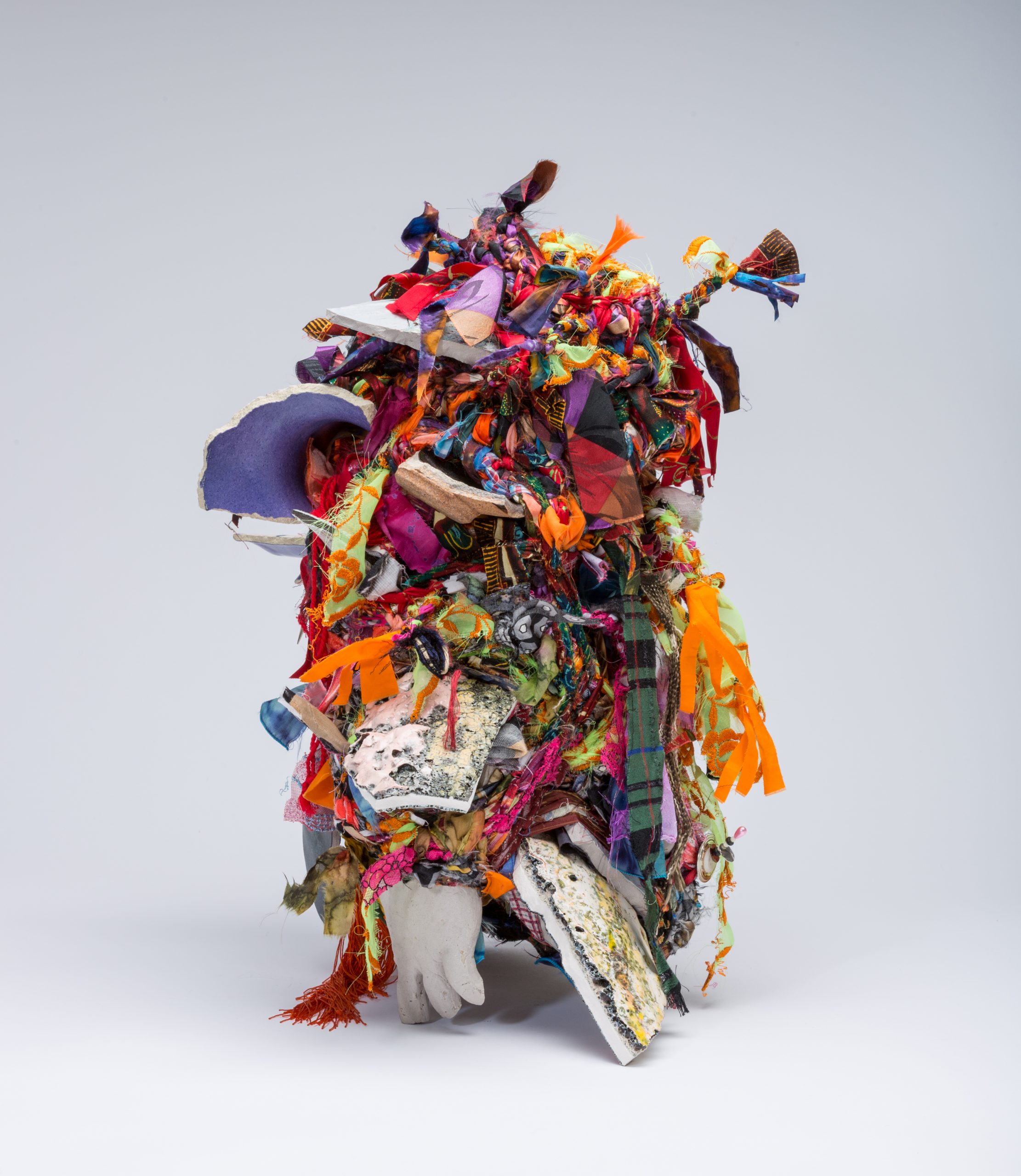
Ramekon O’Arwisters, Cheesecake #2, 2019
In 2011 he had an epiphany, realizing that “traditional materials, oil paint and canvas, did not equate to my experience. That was a Western European tradition.” What resonated with Ramekon was fabric. After frustrating years courting acceptance from galleries, he decided to instead give that very thing he sought—acceptance—to others. Thus his social practice work, the Crochet Jam, was born.
For the past decade, O’Arwisters has transported heaps of colorful fabric—along with handcrafted, oversized wooden crochet hooks—to community centers, galleries and hospitals around the country. He believes the important aspect of these events is giving agency to others in a nonjudgmental space, much as his grandmother empowered him to accept who he was and to feel loved and valued.
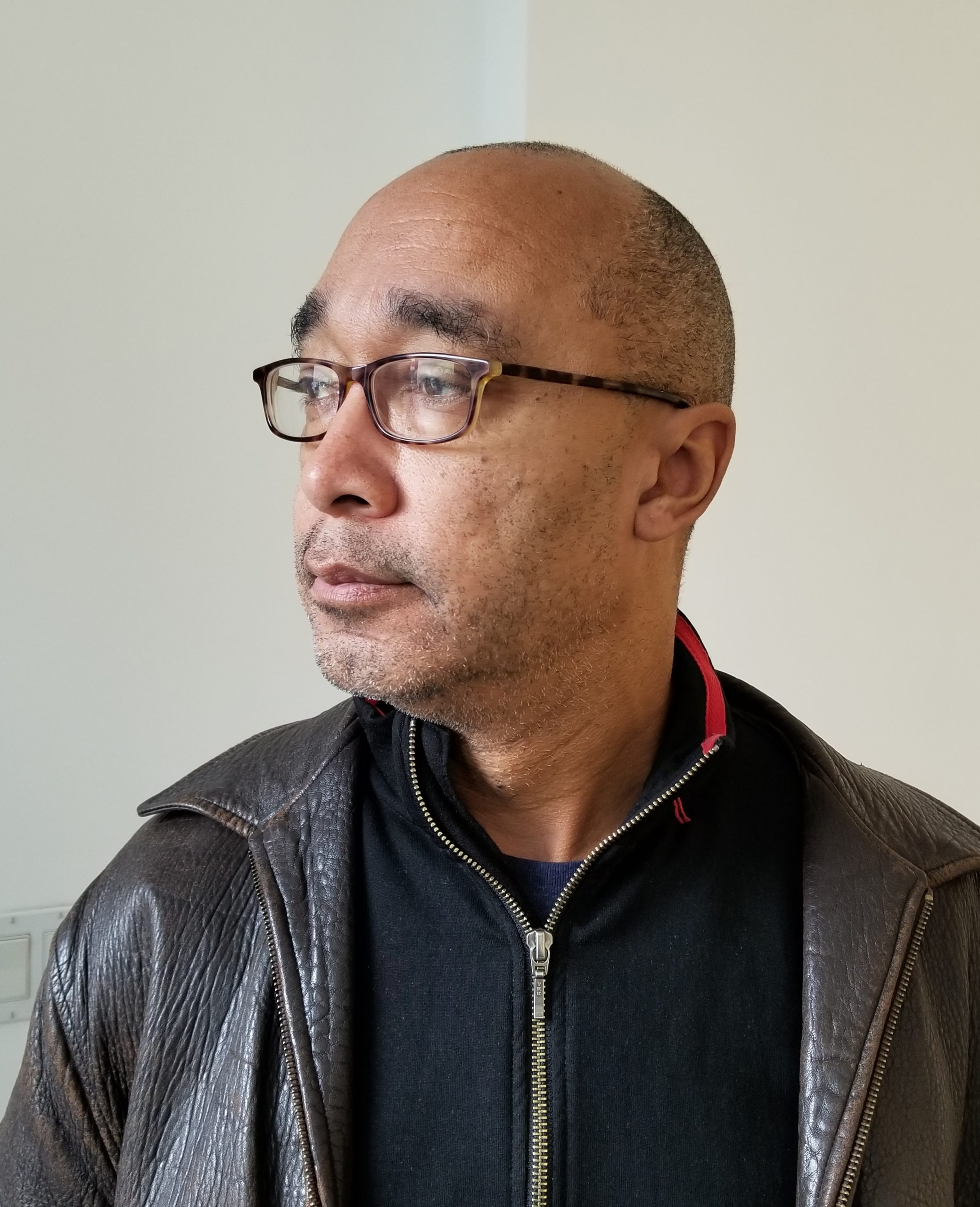
Ramekon O’Arwisters Portrait.
In 2016 during his Recology residency, he stumbled across shattered ceramics at the SF dump, sensing a deep connection to the broken shards of pottery. Soon, he began combining them with fabric and the crocheting process. A strong show of this work, “Mending,” was presented at Patricia Sweetow Gallery in 2018.
O’Arwisters’ latest body of work, “Cheesecake” is flashier, with brightly colored fabrics, hot pink lace, gold tassels. In collaboration with the ceramic department at Cal State Long Beach, he now recycles broken pieces from their “shard yard.” As objects, his medium-scale sculptures nearly defy description, their complex geometry—a tangle of knotted fibers and razor-sharp edges—convey an unsettling mixture of beauty and danger. In an alchemic reaction, the two materials of fabric and clay are forged into a new union, a bond that adheres through sheer force of will.
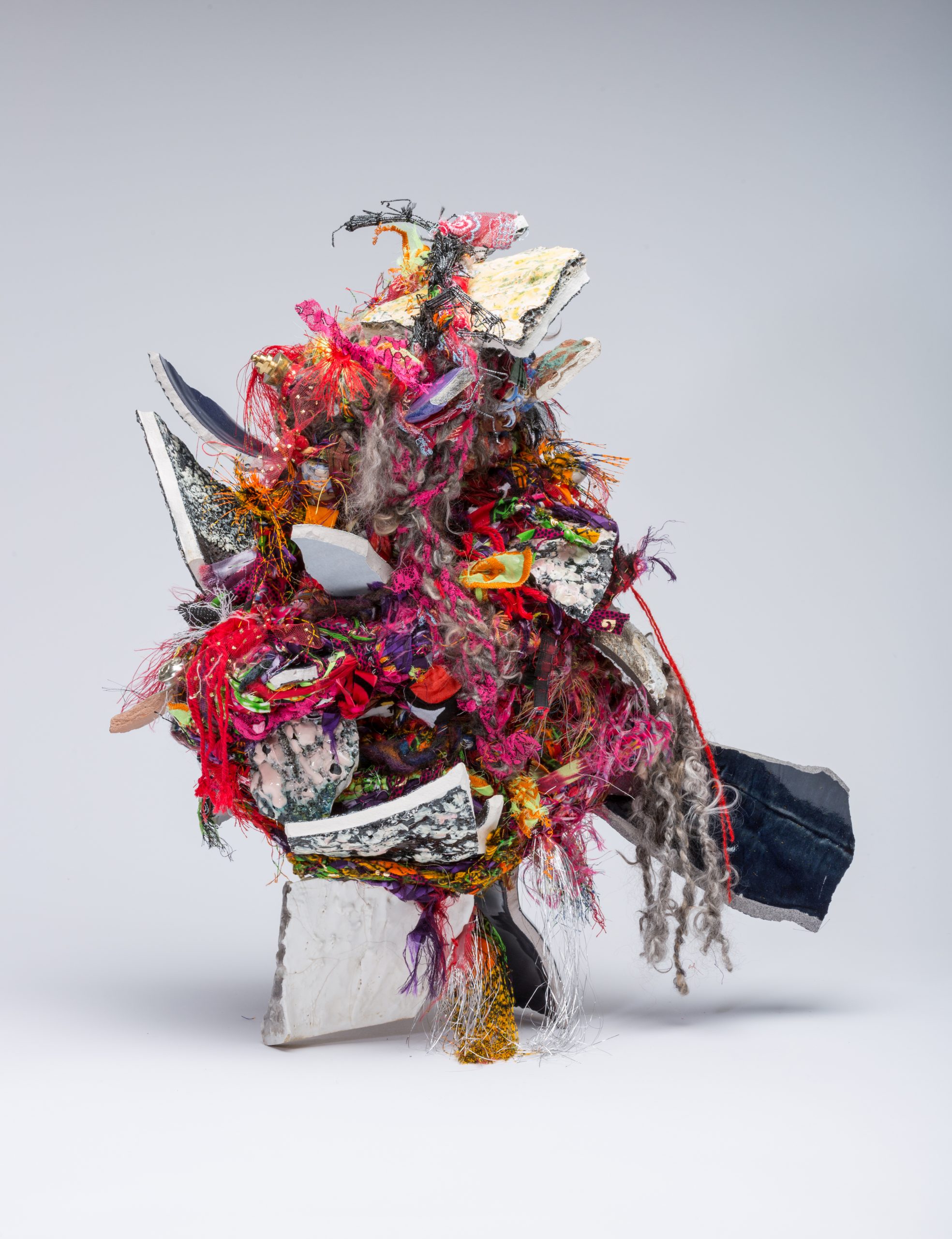
Ramekon O’Arwisters, Cheesecake #6, 2019
As we finish our conversation, the artist pauses, then shares, “you know, you mentioned that word, ‘democracy,’ and people tell me that we’re living in one, but I don’t see it. I don’t know what it’s like to live in a democracy.” He views his work as taking place in a context of racism as a permanent state of our country. Driven by this deeply felt and unchanging understanding of injustice, he asks, “How can I turn my pain and anguish into something that’s beautiful and profound?”
Photos by David Schmitz, courtesy the artist & Patricia Sweetow Gallery.

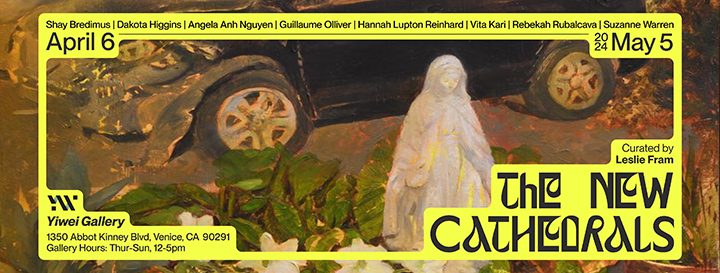



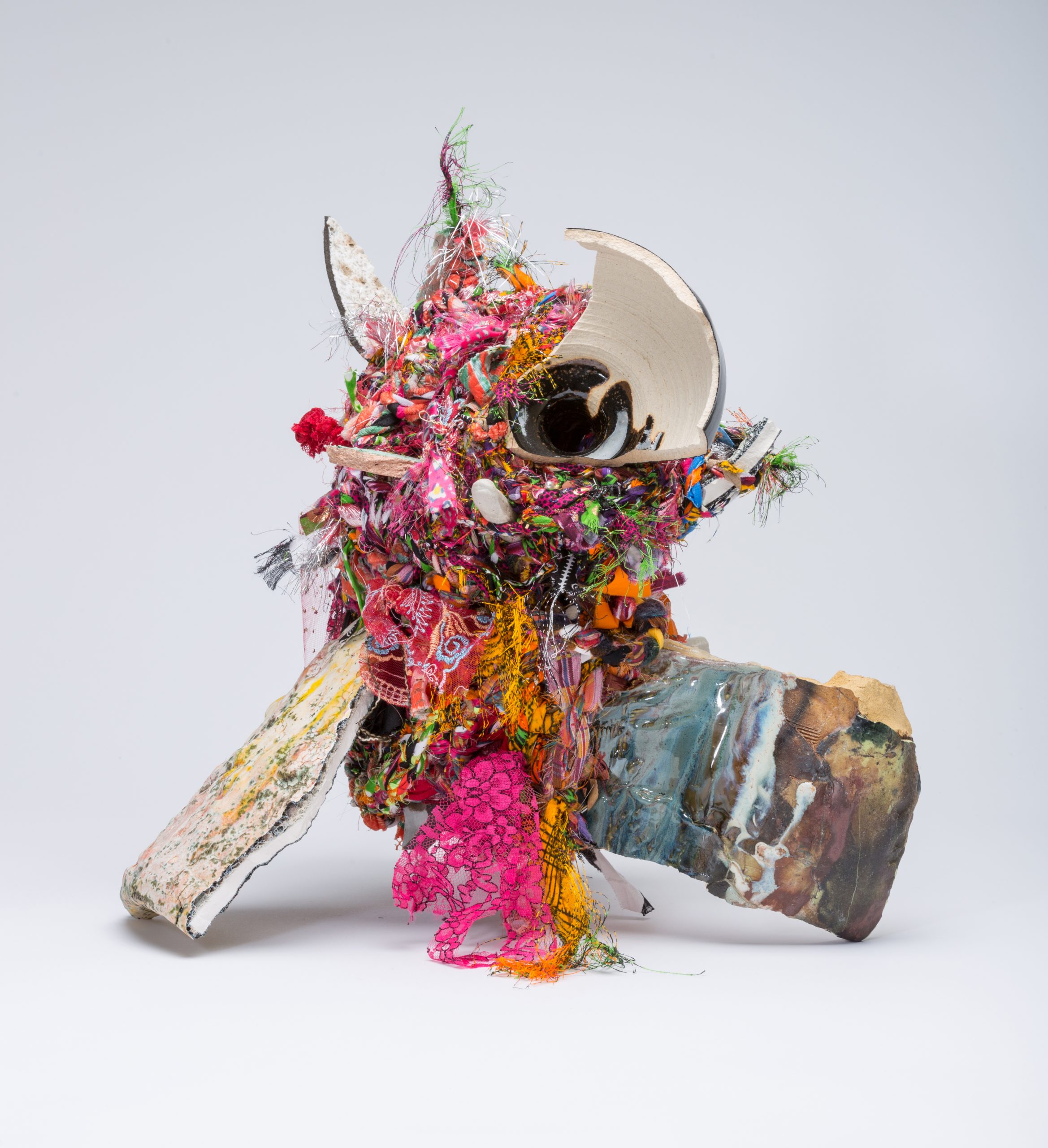
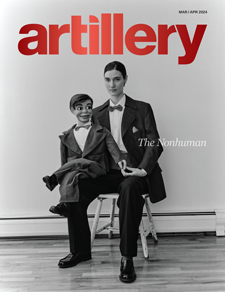
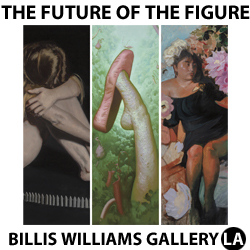

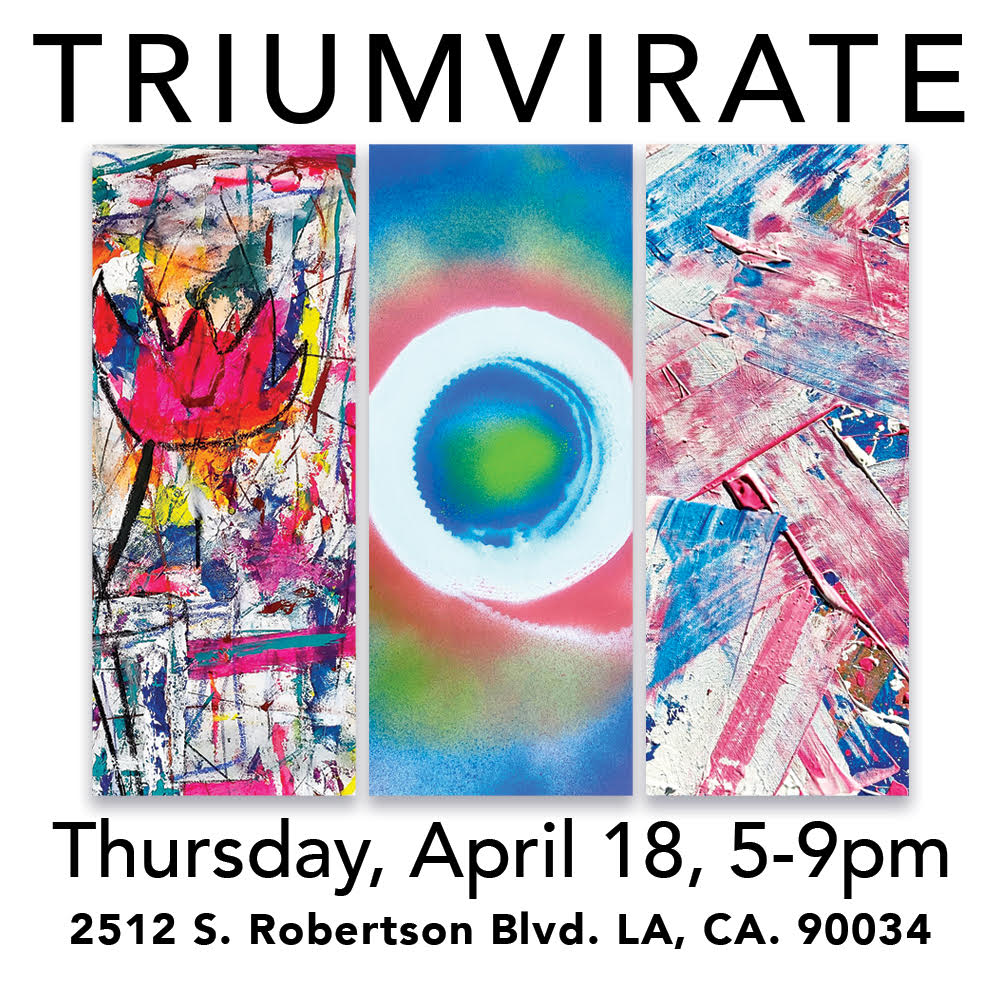
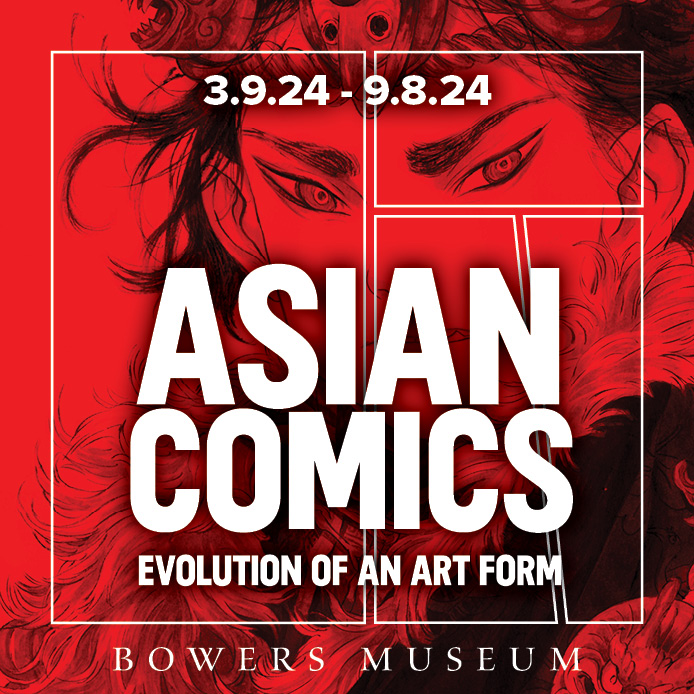
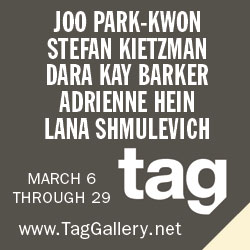
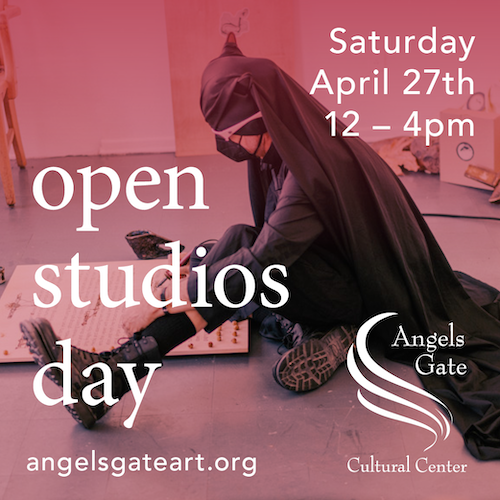

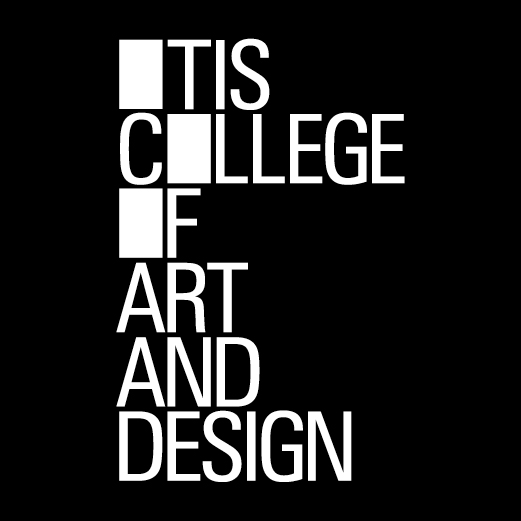

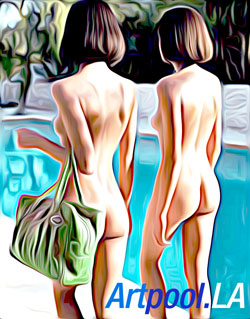
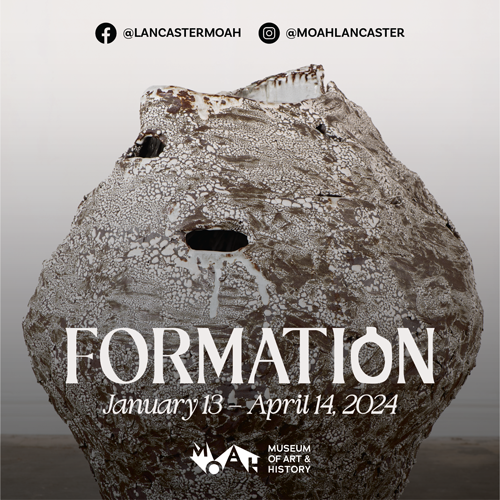
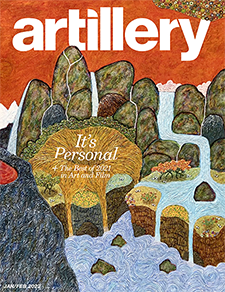
0 Comments